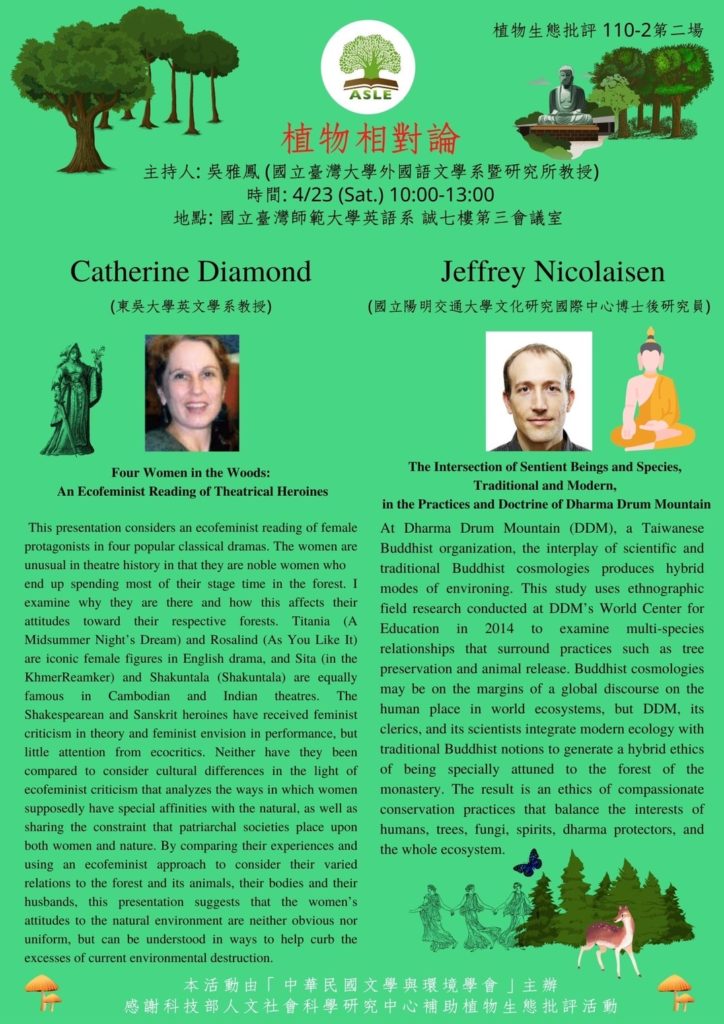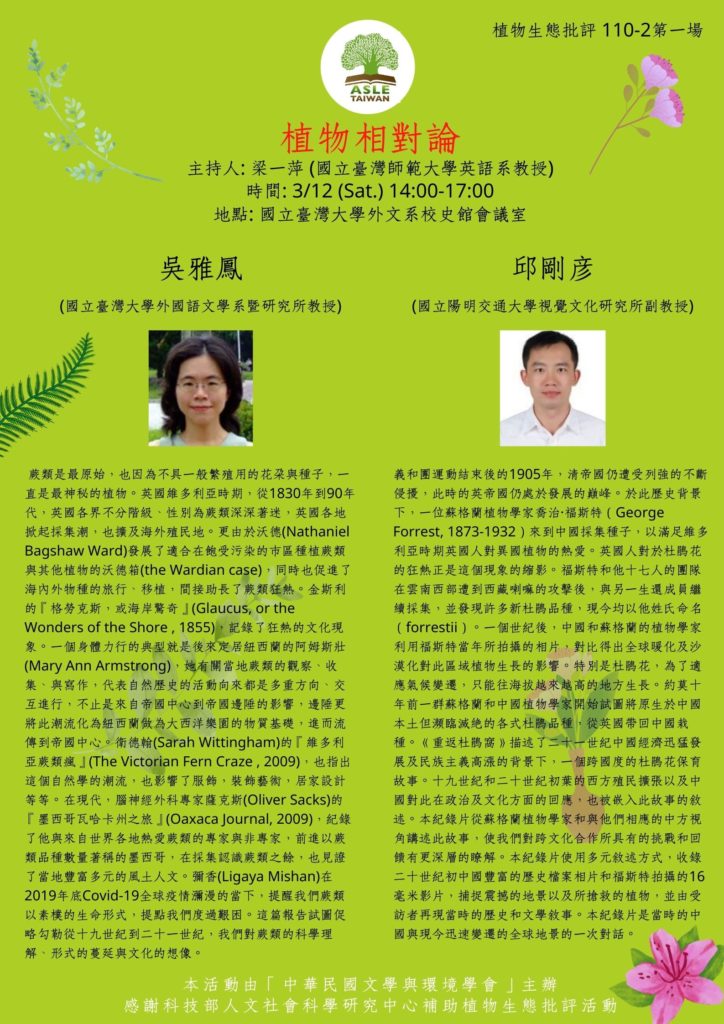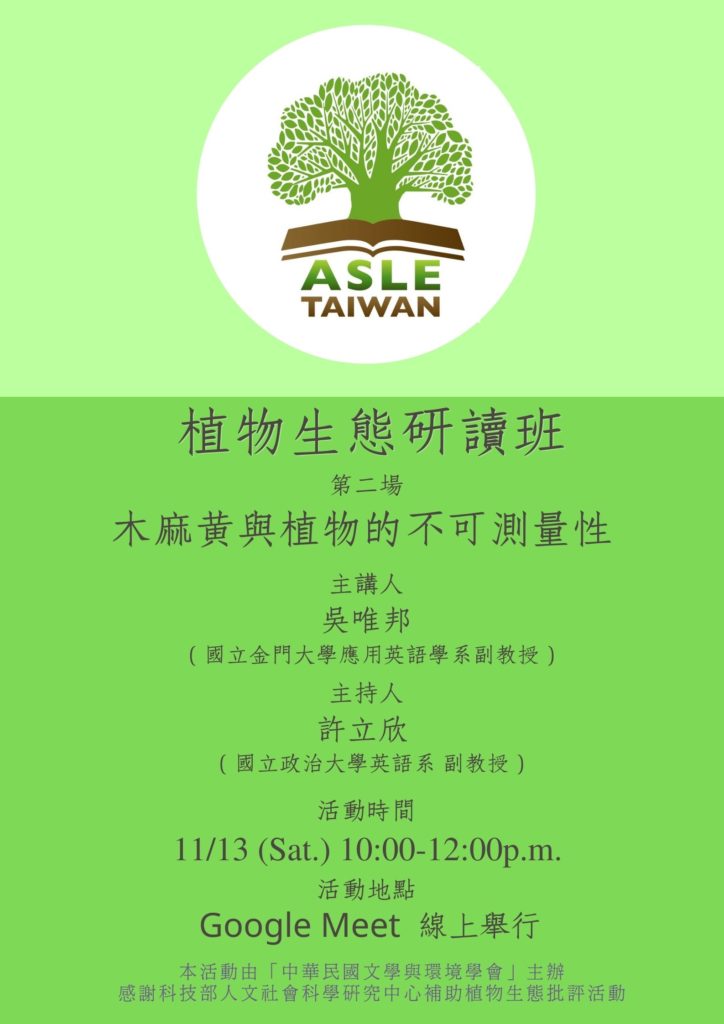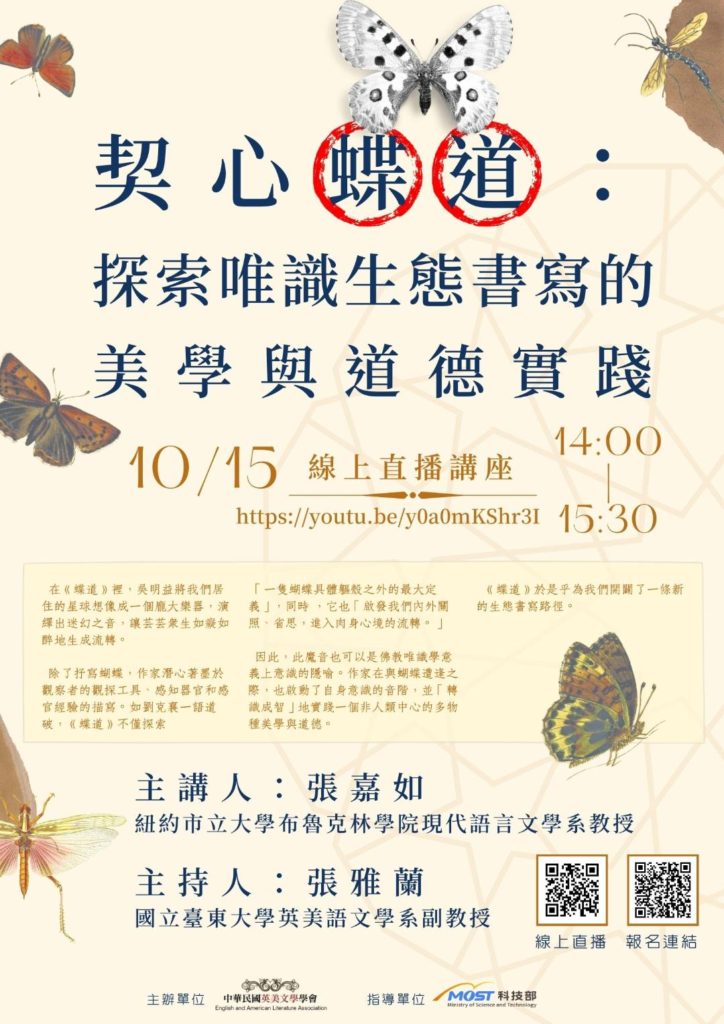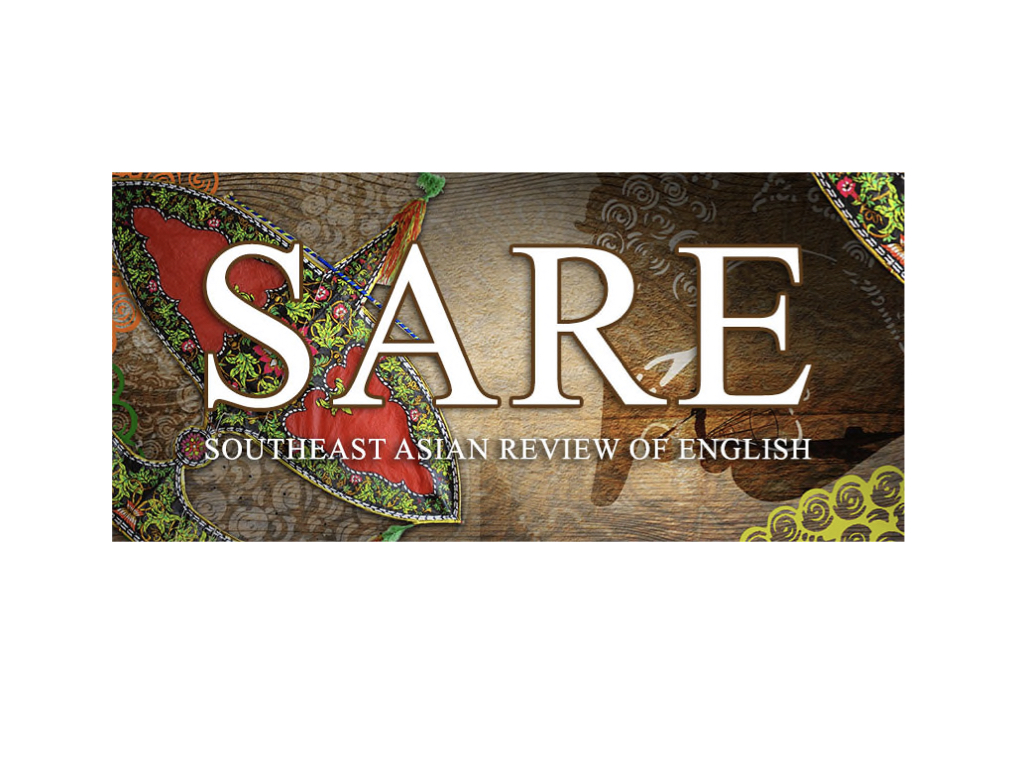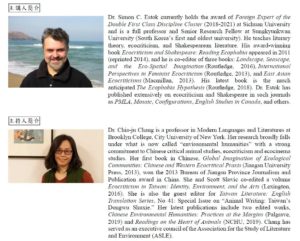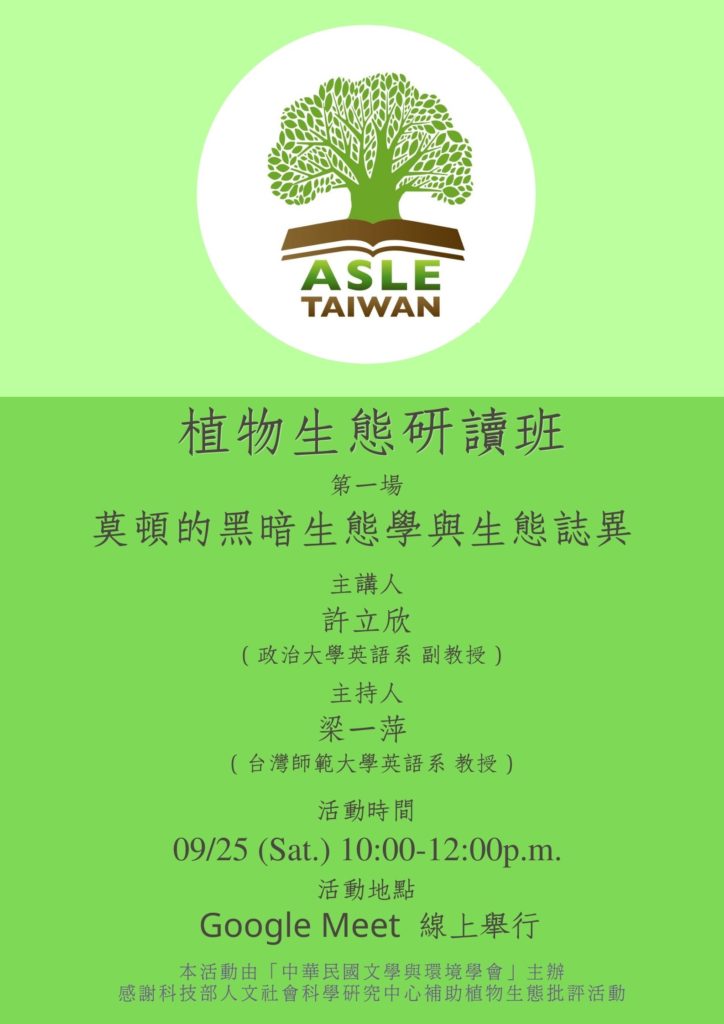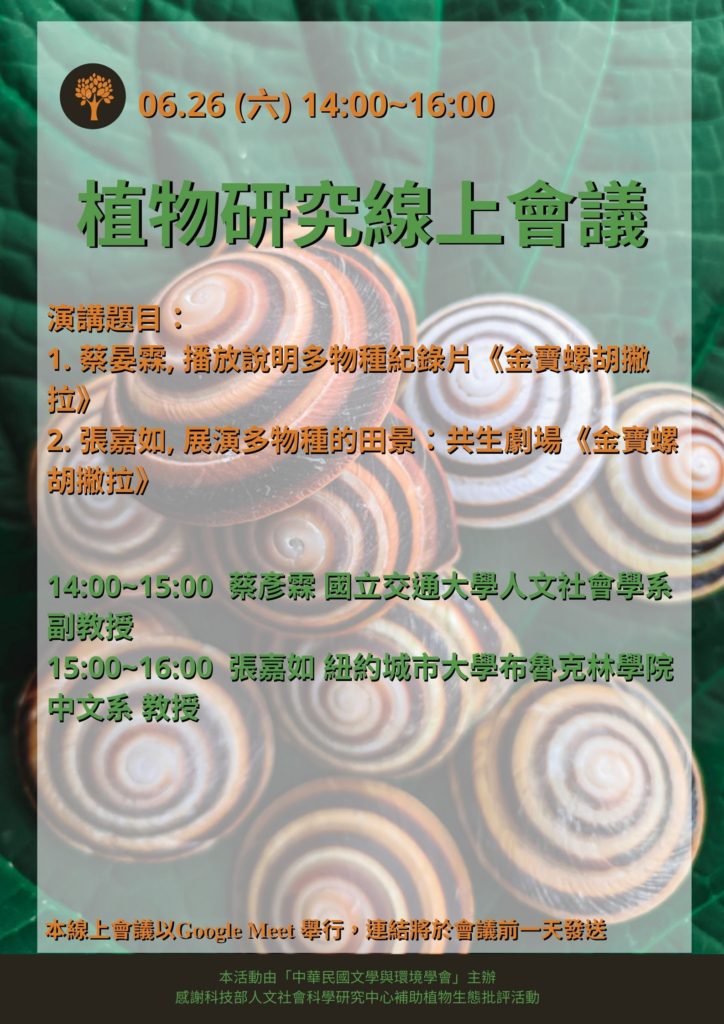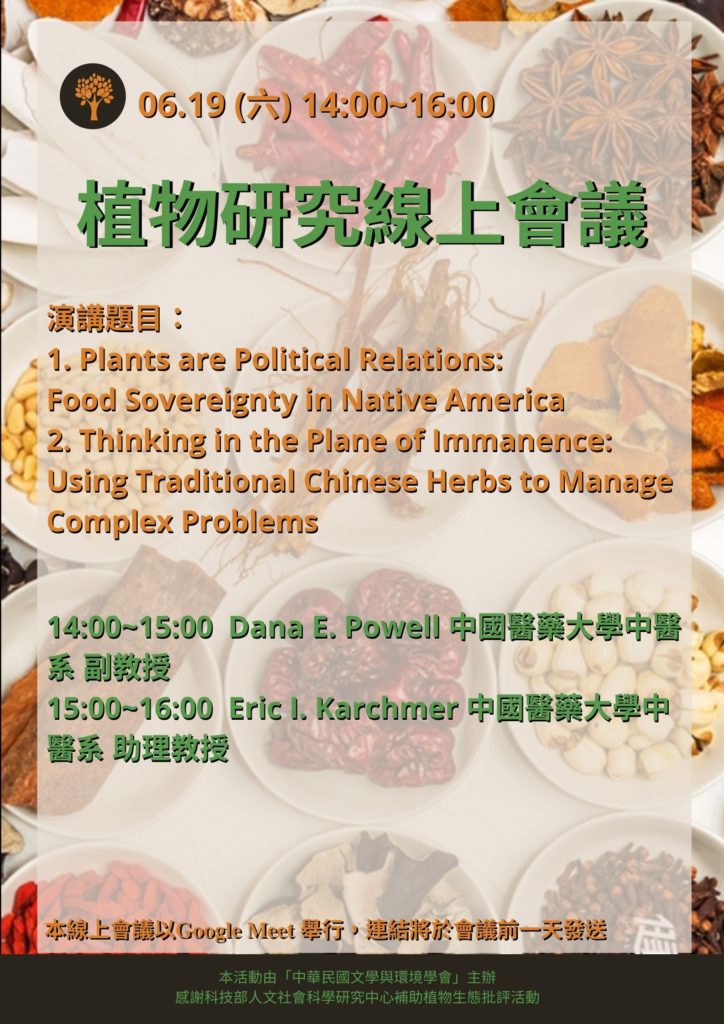※此次活動在 國立臺灣師範大學英語系誠七樓第三會議室進行
【活動地點】:國立臺灣師範大學英語系誠七樓第三會議室
【報名網址】:https://forms.gle/SP8WVcG2hL463xVt9【研讀主題1】: Four Women in the Woods: An Ecofeminist Reading of Theatrical Heroines
Nicolaisen, Jeffrey. “The Intersection of Sentient Beings and Species, Traditional and Modern, in the Practices and Doctrine of Dharma Drum Mountain.” Chinese Environmental Humanities: Practices of Environing at the Margins, edited by Chia Ju Chang, Palgrave Macmillan, 2019, pp. 289-308.
